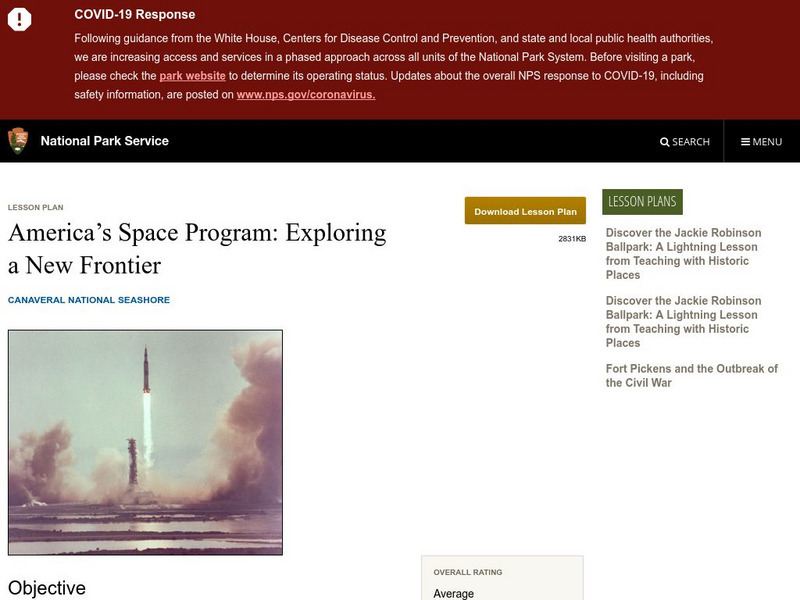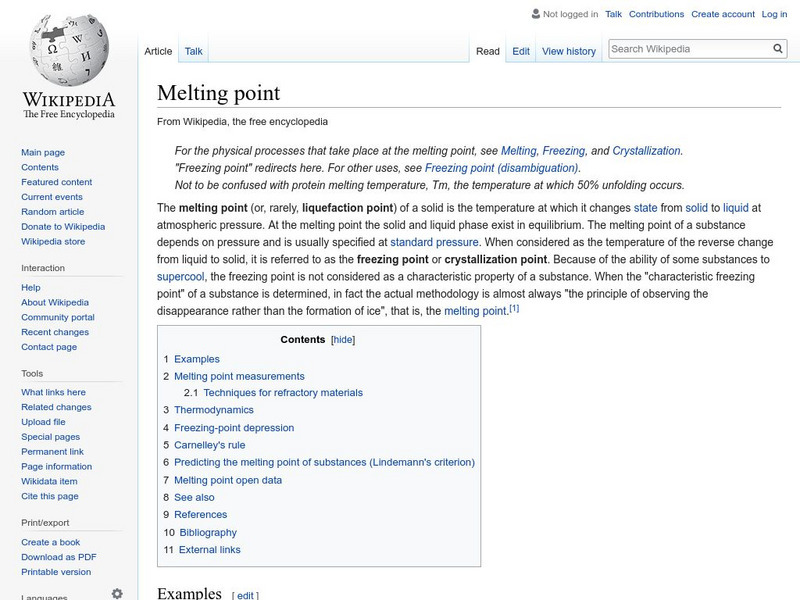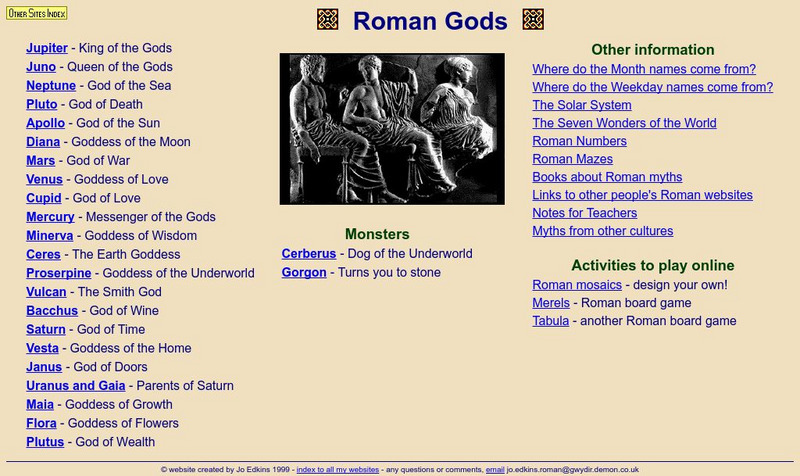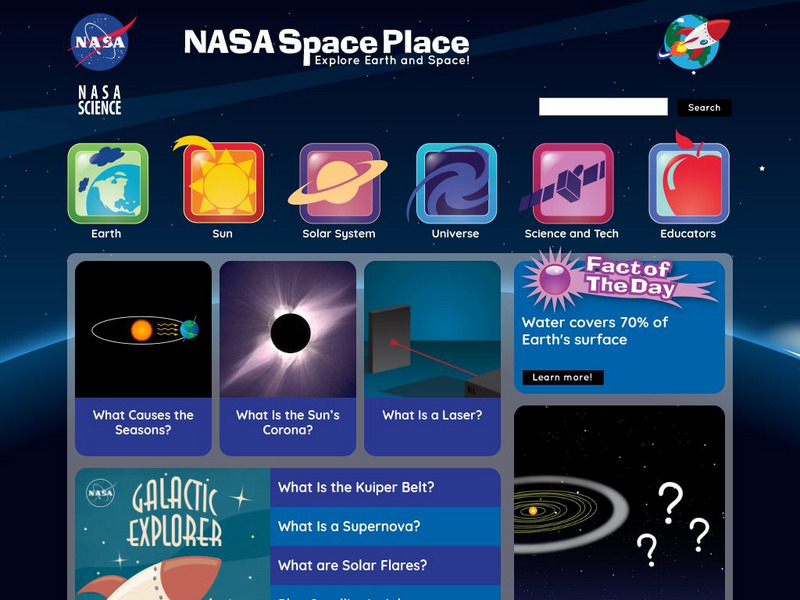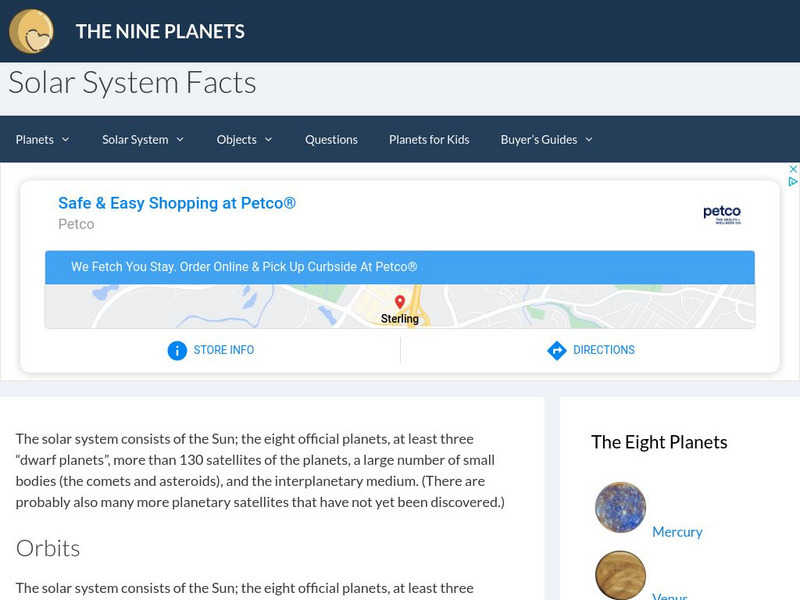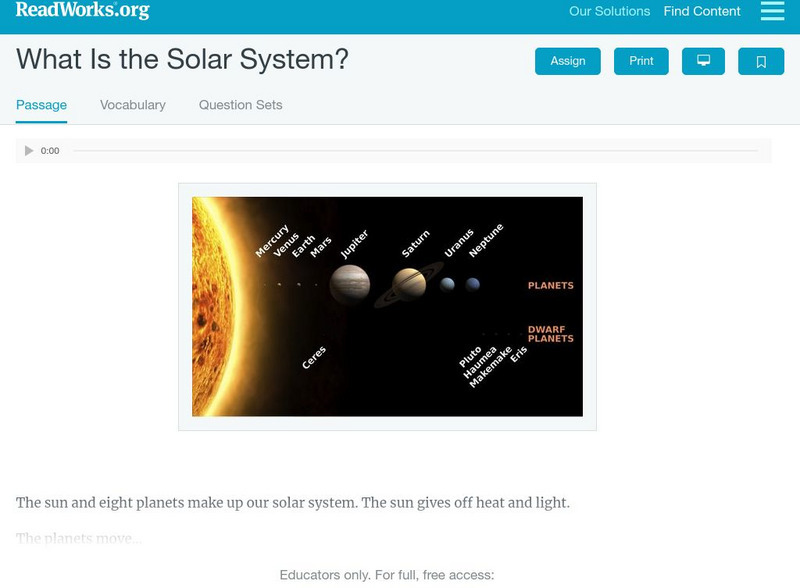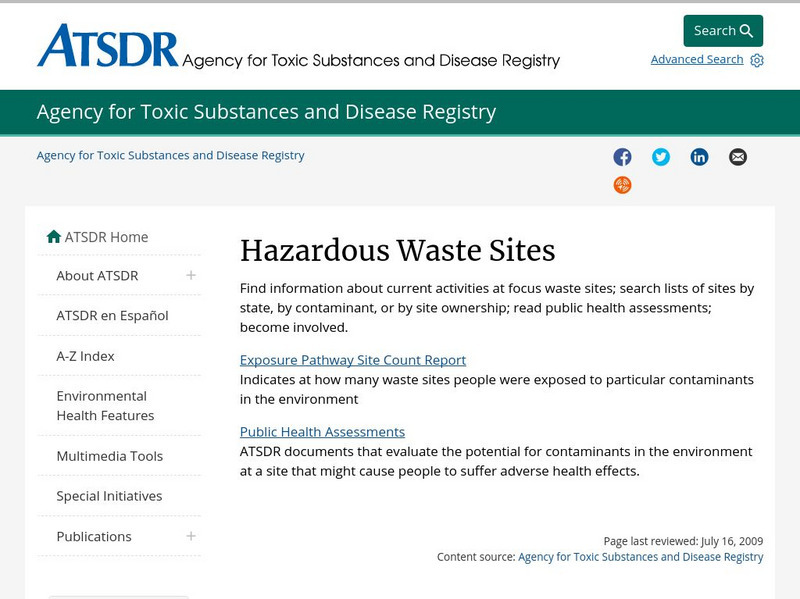Read Works
Read Works: The Amazing Flying Machine
[Free Registration/Login Required] An informational text about the Wright brothers inventing the airplane and how that led to other aircraft inventions. A question sheet is available to help students build skills in reading comprehension.
Rock and Roll Hall of Fame
Rock & Roll Hall of Fame: Queen
Read extensive biographical details on Seventies over the top rock group, Queen, 2001 inductees into the Rock and Roll Hall of Fame. Includes a timeline of key events, recommended reading list, and essential songs.
Black Past
Black Past: Jones, Quincy
This encyclopedia entry offers a brief look at Quincy Jones, who began as a jazz trumpet player, but has expanded his career beyond music into film and television. There are links to websites for more information.
Curated OER
National Park Service: America's Space Program Exploring a New Frontier
This site includes a instructional activity for teachers to use when teaching about America's space program. Also included is the history of the space program, maps, readings, images of the space program, and benefits that resulted from...
Library of Congress
Loc: America's Story: Johnson's Task, Unify Space Program
Russia was ahead in the "space race" in 1961. In this article, the Library of Congress discusses how President Kennedy assigned Lyndon Johnson the task of uniting the different parts of the U.S. space program into NASA.
Ducksters
Ducksters: History of Ancient Rome for Kids: Roman Gods and Mythology
Kids learn about the Gods and Mythology of Ancient Rome on this site. Taken from the Greeks, the Romans had gods such as Jupiter, Mars, Mercury, Neptune, and more.
Varsity Tutors
Varsity Tutors: Archiving Early America: Obituary of Martha Washington
Early America shows a newspaper clipping of Martha Washington's obituary in the Hartford "American Mercury" newspaper.
Nine Planets
The Eight Planets: Just for Kids
Here is a clear, simple picture of the solar system. Click on the names of the planets to learn more about each. Clicking on underlined terms takes you to more and more detailed scientific information.
Wikimedia
Wikipedia: Melting Point
Wikipedia offers a brief description of the term, "Melting point," including hyperlinked terms.
PBS
Pbs Learning Media: The Planets of the Solar System
As technology has advanced, so do our views and understanding of the solar system. No longer do we have to rely on our unaided eyes to observe planets. View these high-quality images of planets provided by NASA spacecraft.
Other
University of Cambridge: Astro Adventure
Imagine a time when you can travel through space, planet to planet, cheaply and in comfort, when you can take a trip to the stars as your next holiday. Well, imagine no more. Learn more about the solar system as you take this trip of a...
Other
Canal Kids: Ciencias (Science for Portuguese Speakers)
Colorful, engagingly written information about astronomy and biology for Portuguese-speaking English language learners. Both subjects are broken down into a broad array of related subtopics. The biology section is particularly helpful...
Other
Roman Gods
This is an awesome site to research Roman gods. Find out about these Roman icons. This site lists each of the gods and then by clicking on the name you get more in depth information.
Other
Scienceviews.com: Minerals and Their Uses
Every segment of society uses minerals and mineral resources everyday. The roads we ride or drive on and the buildings we live learn and work in all contain minerals. Below is a selected list of commonly used metallic and nonmetallic...
NASA
Nasa: Last Minute Qualms
This site from NASA provides a detailed description of events leading up to the selection of Alan Shepard to be the first American to travel into space and the events immediately preceding the mission.
Other
Roman Religion and Burial Practices
Details from the Sussex Archaeological Society about Roman religious practices: Roman gods, what Romans were like, and how the Romans buried their dead.
NASA
Nasa: The Space Place
This site from the National Aeronautics and Space Administration allows students to explore topics related to planet earth and outer space. A number of games and interactive features are available.
NASA
Nasa: Planets in a Bottle
In this simple lesson, students grow yeast to learn how the climates on each of the nine planets would affect life.
NASA
Nasa: Space Place: Messenger: Planet Mass Comparison
Compare the masses of planets in this interactive animation. Simply pile a number of Earths on one side of the scale, to balance with the mass of one Jupiter. Then try this with all the planets.
US Environmental Protection Agency
Epa: Learn the Issues: Chemicals & Toxics
This site provides real-world issues as well as the scientific research and technology used to support the EPA's mission to protect human health and safeguard the natural environment.
Nine Planets
The Nine Planets: An Overview of the Solar System
A detailed overview of the history, mythology, and current scientific knowledge of each of the planets and moons in the solar system.
Read Works
Read Works: What Is the Solar System?
[Free Registration/Login Required] An informational text about the solar system. A question sheet is available to help students build skills in reading comprehension.
Read Works
Read Works: What's Up in Space?
[Free Registration/Login Required] An informational text about outer space. A question sheet is available to help students build skills in reading comprehension.
Centers for Disease Control and Prevention
Centers for Disease Control: Atsdr: Superfund Hazardous Waste Sites
Extremely detailed look at the dangers associated with the hazardous and solid waste sites in the U.S.
Other popular searches
- Planet Mercury
- Mercury Astronauts
- Project Mercury
- Mercury Emissions
- Mercury Picture
- Mercury Poisoning
- Mercury in Fish
- Mercury Disposal
- Mercury in Lakes
- Mercury Bioaccumulation
- Bioaccumulation of Mercury
- Model Habitat Mercury



